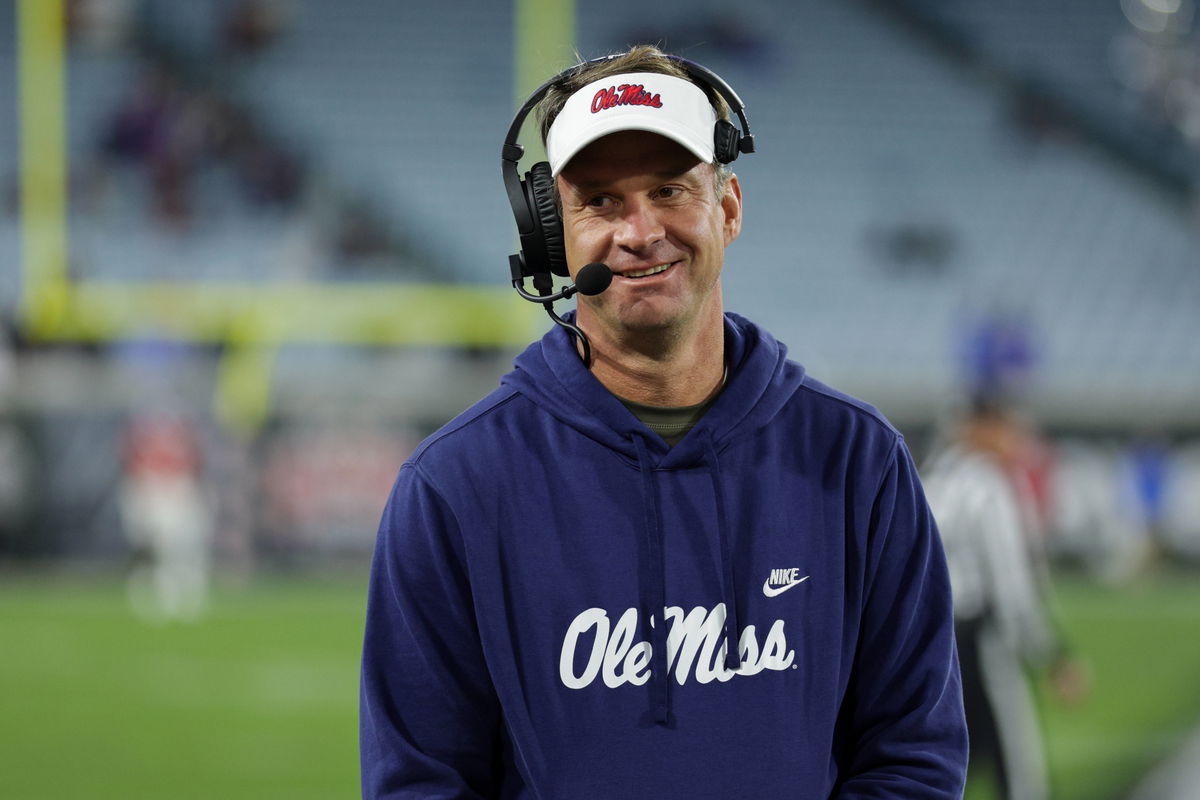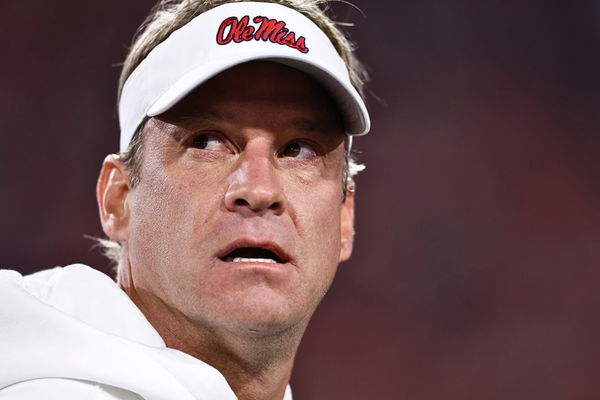
Imago
A win on Saturday against Oklahoma will essentially put Ole Miss closer to the playoff spot.

Imago
A win on Saturday against Oklahoma will essentially put Ole Miss closer to the playoff spot.
Lane Kiffin apologized to gamblers after Kentucky cut Ole Miss’ lead to seven with a last‑second field goal in a 30-23 finish, and Scott Van Pelt detailed exactly how that sequence felt from the perspective of a Kentucky ticket that suddenly cashed. Lane Kiffin’s postgame line, “Sorry to a lot of gamblers out there,” landed because the kick didn’t change the winner, only the wallets, and SVP’s two‑minute ride captured why that distinction matters on Saturdays now.
Watch What’s Trending Now!
From the couch view, it was a textbook clock‑math plea: “Kick the kick. Kick it. Kick the field goal. Kick the field,” SVP said on ESPN, with his sons reminding him Kentucky trailed by ten and the outcome wouldn’t change. The logic tracks: a quick three makes it a one‑score game, preserves a precious few seconds, and leaves a path that requires an onside kick and a shot play rather than a plodding red‑zone attempt that dies with the clock. The box score backs that sequence: Ole Miss had just pushed the margin to 30‑20 at 1:10, and Kentucky’s Jacob Kauwe drilled a 39‑yarder with eight seconds left, the exact play SVP was begging to see. That field goal didn’t alter the winner, but it changed the number that mattered to anyone holding Kentucky plus the points.
The moment hinged on a real sideline choice, too. As Scott Van Pelt continued, “After they call the timeout you see [Mark] Stoops, and I could read his lips, and he’s like ‘we should’,” SVP recalled, meaning take the sure three and extend the game. The scoring summary captured the timeline that enabled it. Ole Miss extended to ten with 1:10 left, Kentucky hurried into range, and, with time to organize, opted for the field goal that set up the only plausible two‑score finish. The broadcast didn’t duck the gambling reality either. Sean McDonough said, “Gambling is part of it now, so we might as well acknowledge, the field goal changed the spread,” and even noted it flipped the total to the over. That’s not a wry aside anymore. It’s part of why fans tracking both the scoreboard and the spread felt two different outcomes at once.
ADVERTISEMENT

ADVERTISEMENT
Lane Kiffin met that new reality head‑on, moments after the 39‑yard kick settled at 30-23. The Wildcats were listed at +8.5 in coverage of the finish, while McDonough referenced a 7.5 closing figure and a 51.5 total that the late three nudged to 53. However one booked it, the mechanics were indisputable. Kentucky’s late field goal was the correct game‑theory play, and it produced a cover in a game Ole Miss still controlled on the scoreboard.
Scott Van Pelt wrapped it the way only a bettor can: “Snap, hold, kick, toe meets leather. Good. Take me to cover town,” he said, before adding that “the correct side” had been Kentucky all along. The ledger agrees with the emotion: Kentucky lost by seven, the exact margin that made Wildcats backers right and Rebels backers wrong, given the widely cited numbers around kickoff. It’s why some called it a bad beat and others called it the proper read. When a team covers for “59 minutes” only to get clipped late, the only scoreboard that matters for bettors is the spread, and this one flipped at eight seconds.
ADVERTISEMENT
Lane Kiffin on a measured, meaningful road win
“Thought that was a really good win, especially after last year’s loss against them. They play teams tough over the years and give people problems.” That framing sets the tone for what this meant in Lexington, not style points, but solving a familiar opponent that squeezes games and punishes mistakes. When a coach opens with respect for the matchup, it signals how much the performance is tracked to the plan, particularly in a place where possessions feel scarce and field position feels heavy.
“Was really pleased after the slow start of being down 10-0 that we go 30-13 after that. So, pleased overall with that.” The emphasis lands on response and sequencing. That mid-game pivot speaks to situational poise and complementary football, the blend of run rate, protection, and defense that turns a slog into a controlled finish. “For now you play four SEC road games, and they’re always hard and difficult. Anytime you can get a win that’s encouraging. That is the seasonal lens of bank road wins, reduce volatility, and build momentum before a home stretch. It reads less like a celebration and more like a checklist, which is exactly how a program treats September when bigger goals depend on stacking controlled outcomes.
ADVERTISEMENT
ADVERTISEMENT
ADVERTISEMENT
ADVERTISEMENT

